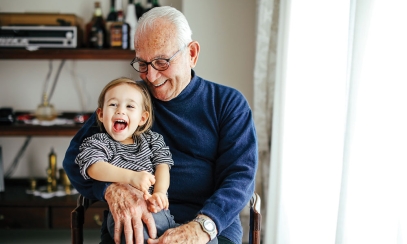
Waypoints in the darkness
Our youth and our faith
Our youth and our faith
Young people today are facing challenges that appear both perplexing and unprecedented. They are facing an existential crisis that could prove either disastrous or hopeful for human civilization. Teenagers and young adults are grappling with questions concerning the very nature of reality, what it means to be a human being, the purpose of human sexuality, the vapidness of solely online interactions, doubts concerning the possibility of forming permanent relationships that include marriage, and skyrocketing rates of depression and anxiety. The answers given by the so-called experts in academia, government, and Hollywood range from the shockingly anti-Catholic to the frighteningly anti-human.
Young people today are facing challenges that appear both perplexing and unprecedented. They are facing an existential crisis that could prove either disastrous or hopeful for human civilization. Teenagers and young adults are grappling with questions concerning the very nature of reality, what it means to be a human being, the purpose of human sexuality, the vapidness of solely online interactions, doubts concerning the possibility of forming permanent relationships that include marriage, and skyrocketing rates of depression and anxiety. The answers given by the so-called experts in academia, government, and Hollywood range from the shockingly anti-Catholic to the frighteningly anti-human.
Parents, grandparents, family members, and all those concerned with the wellbeing of the young are also facing incredible challenges. One hears questions such as: “How do I parent my children in a radically post-Christian age?” “How do I impart the Catholic faith to my children and grandchildren?” “How do I teach my children there is such a thing as objective truth?” “Are Catholic schools the only option now that public schools appear to be pushing an ideology that is at odds with our faith and our understanding of the flourishing of the human person?”
What should our answer be? How do we help our young people to not only come to the fullness of the faith through Jesus Christ and the Church, but also recognize there is an objective reality apart from subjective thinking, willing, experience, or identity?
Stanley Hauerwas, former professor of Ethics at the University Notre Dame and Duke Divinity School, made an interesting comment a few years ago. He said he believed the military was the most morally serious institution in American life but the Church needed to be. He said the military was morally serious precisely because to join it meant taking an oath to be willing to die for others if necessary. It does not get any more morally serious than the promise to lay one’s life down for others.
Indeed, the Church must be made the most compelling and most morally serious of institutions for our young people and for all people as we navigate the spiritually darkening world of the 21st century.
To this end, consider donating your time and talent to the youth of our diocese. The faith we have received must be transmitted to the next generation in a compelling way. The Office of Youth Ministry for the diocese will be leading a pilgrimage to Lisbon, Portugal, for World Youth Day Aug. 1-6. Consider praying for or contributing to the Office of Youth Ministry for this once-in-a-lifetime opportunity.
In the 2019 Apostolic Exhortation Christus Vivit, Pope Francis encouraged young people — and the entire Church — to be aware that Christ is alive and that only by becoming a follower of Jesus Christ and taking one’s place in the mission of the Church can one experience real peace, joy, fulfillment, and eternal happiness. Pray for our young people as they take their places and find their vocations in the Church.
Scott Bowen is a social worker at Catholic Family Services in Birmingham. He holds a master’s of social work degree and is a licensed independent clinical social worker.



